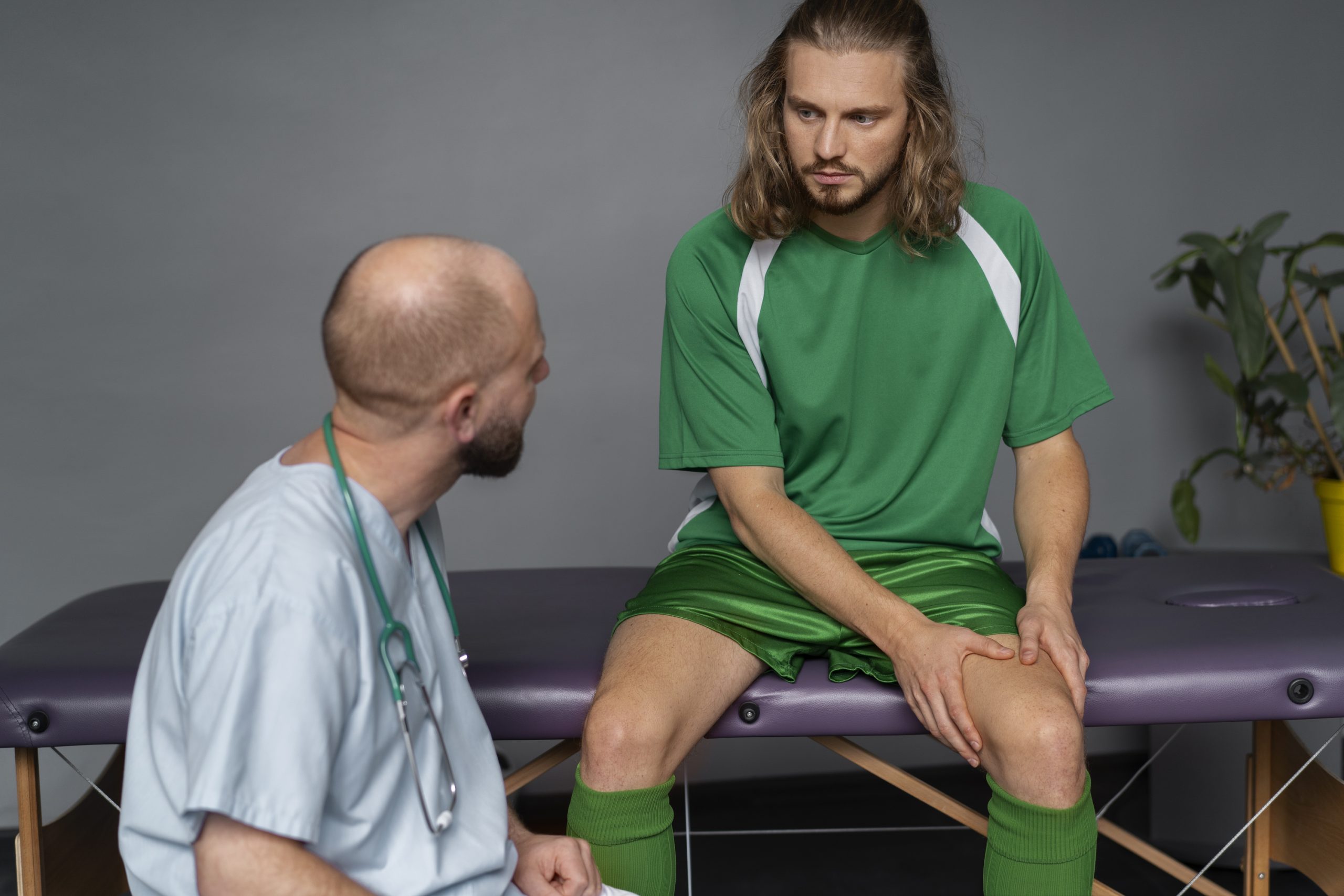

Autologous conditioned serum (ACS), a biologic therapy utilized by famous athletes to treat arthritis and sports injuries, has also been shown to help with neurological pain induced by chemotherapy or diabetes.
In a rodent investigation, Duke Health researchers discovered that a spinal injection of the conditioned serum relieved limb pain for far longer than standard analgesics. They also demonstrated that the long-term pain reduction is caused by a pathway other than the anti-inflammatory effects traditionally attributed to ACS—an finding that potentially improve and expand the therapy’s use.
The findings are published online in the journal Brain, Behavior, and Immunity.
“This treatment just seemed to be more effective and longer lasting than other biologic therapies,” said lead author Thomas Buchheit, M.D., associate professor in Duke’s Department of Anesthesiology and director of the Duke Regenerative Pain Therapies Program.
ACS is made from a person’s own blood, which is centrifuged to eliminate blood cells and concentrate anti-inflammatory proteins. While not FDA authorized, the therapy is available at Duke and a few other centers in the United States, and has long been praised by athletes who have had cartilage injections.
Buchheit and co-senior author Ru-Rong Ji, Ph.D., began working together with ACS to better understand the long-term determinants of pain relief. Ji is a professor at Duke with expertise in the molecular and cellular factors underlying pain; he is also the director of the Center for Translational Pain Medicine.
The team also drew on the knowledge of co-senior author Tony Jun Huang, Ph.D., professor of Mechanical Engineering & Material Science, who studies micro-particles in fluids for biological diagnostics and therapies.
The Duke researchers employed human, rat, and mouse ACS fluid to investigate its efficacy as a neuropathy therapeutic. The serums were administered into mice and rats following treatment with the chemotherapeutic medication paclitaxel, which is used to treat breast, ovarian, and lung malignancies. Paclitaxel’s most prevalent side effect is numbness and tingling in the hands and feet.
Not only did the therapy relieve the animals’ nerve discomfort, but it also lasted many weeks—far longer than the hours or days supplied by standard pain medications.
“That prompted us to examine what was driving this long-lasting effect, because it could not be explained by the typical anti-inflammatory properties that we associate with ACS,” Buchheit said.
The quantity of growth proteins and anti-inflammatory cytokines identified in the serum has been substantially linked to the effects of ACS. Cytokines are signaling proteins that aid in the regulation of inflammation. However, these proteins would only produce short-term benefits, rather than the long-term benefits demonstrated in the study and realized in real-world clinical circumstances.
Exosomes, according to the Duke researchers, appear to be the component that gives ACS its endurance. These tiny vesicles contain a slew of anti-inflammatory chemicals, including micro-RNAs, and they become highly activated during the ACS conditioning and incubation phase.
“Our finding is that exosomes—small packages of information that cells such as immune cells share—are responsible for the long-term pain-relieving effects of ACS,” Ji said. “By describing this newly identified mechanism for how ACS provides extended pain relief, we can explore a number of additional therapeutic uses. We are greatly interested in continuing our work to investigate exosome profiles in ACS to further define the mechanisms behind this pain relief therapy.”
more recommended stories
 Red Blood Cells Improve Glucose Tolerance Under Hypoxia
Red Blood Cells Improve Glucose Tolerance Under HypoxiaKey Takeaways for Clinicians Chronic hypoxia.
 Nanoplastics in Brain Tissue and Neurological Risk
Nanoplastics in Brain Tissue and Neurological RiskKey Takeaways for HCPs Nanoplastics are.
 AI Predicts Chronic GVHD Risk After Stem Cell Transplant
AI Predicts Chronic GVHD Risk After Stem Cell TransplantKey Takeaways A new AI-driven tool,.
 Red Meat Consumption Linked to Higher Diabetes Odds
Red Meat Consumption Linked to Higher Diabetes OddsKey Takeaways Higher intake of total,.
 Pediatric Crohn’s Disease Microbial Signature Identified
Pediatric Crohn’s Disease Microbial Signature IdentifiedKey Points at a Glance NYU.
 Nanovaccine Design Boosts Immune Attack on HPV Tumors
Nanovaccine Design Boosts Immune Attack on HPV TumorsKey Highlights Reconfiguring peptide orientation significantly.
 High-Fat Diets Cause Damage to Metabolic Health
High-Fat Diets Cause Damage to Metabolic HealthKey Points Takeaways High-fat and ketogenic.
 Acute Ischemic Stroke: New Evidence for Neuroprotection
Acute Ischemic Stroke: New Evidence for NeuroprotectionKey Highlights A Phase III clinical.
 Statins Rarely Cause Side Effects, Large Trials Show
Statins Rarely Cause Side Effects, Large Trials ShowKey Points at a Glance Large.
 Can Too Many Antioxidants Harm Future Offspring?
Can Too Many Antioxidants Harm Future Offspring?Key Takeaways High-dose antioxidant supplementation in.

Leave a Comment